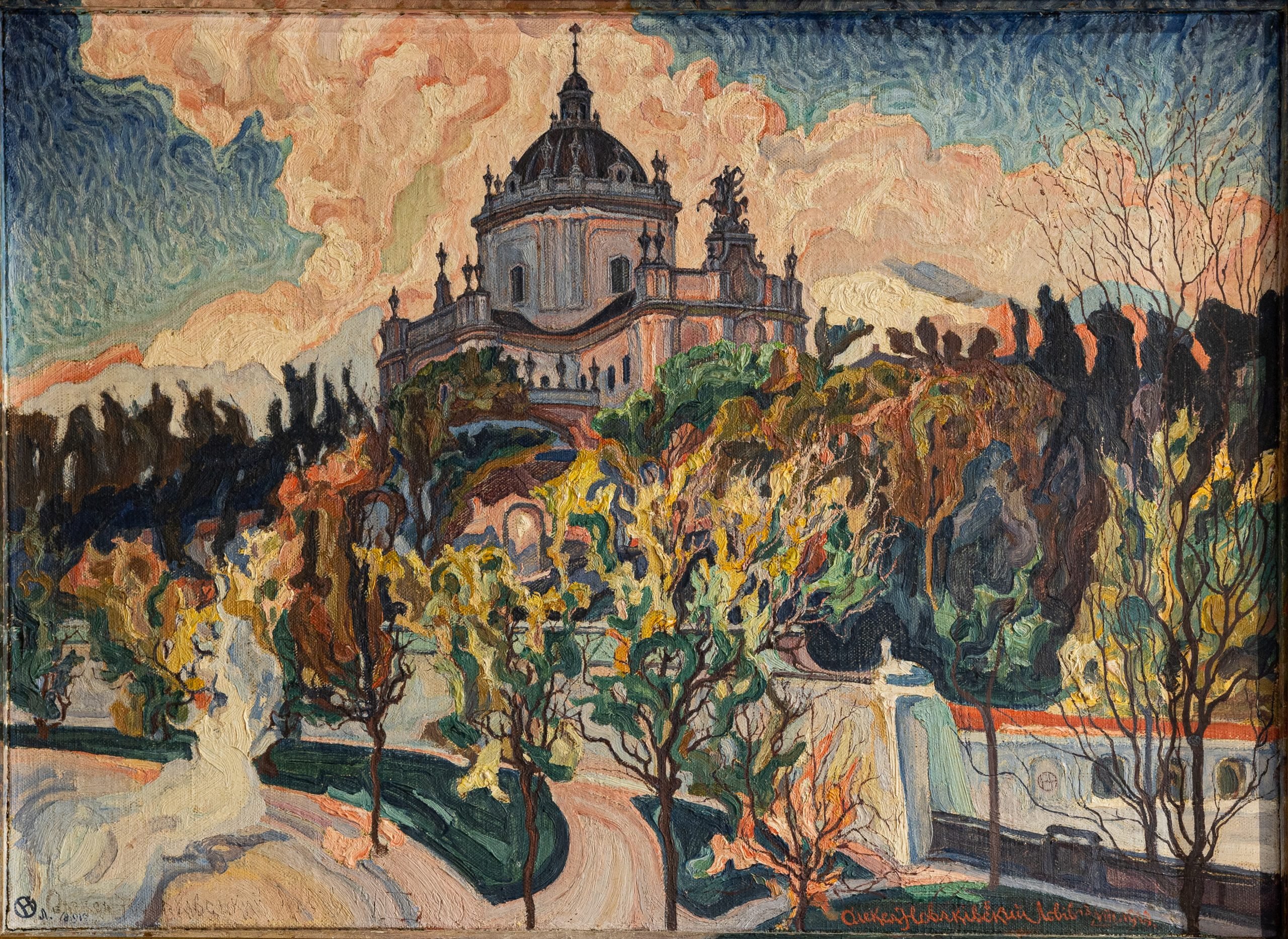
The Center of Intellectual Art Mercury, a museum in the western Ukrainian city of Lviv, has acquired more than a dozen artworks that it deems “significant pieces” from Ukraine’s history, returning them from the United States.
The 15 works were purchased for an undisclosed amount from Larysa Hordynsky, the Boston-based daughter of late Ukrainian art critic and artist Sviatoslav Hordynsky. The artworks were exhibited in a show titled “Wandering in Oneself,” which closed June 16.
Installation view of “Wandering in Oneself” at the Center of Intellectual Art Mercury in Lviv, Ukraine. Photo: Halyna Kuchmanych.
Larysa Hordynsky, a volunteer for an organization called Ukraine Forward, intends to now use the funds from the sale to buy medical supplies and equipment to donate to the Ukrainian military amid the country’s ongoing war with Russia.
“With the sale of my parents’ art collection, Ukraine Forward will be able to purchase tactical medical supplies and equipment for our brave defenders,” she said. “My parents, Sviatoslav and Myroslava, would be delighted to know that these artworks have returned to Ukraine, and also that they will contribute of the defense of their homeland.”
Sviatoslav Hordynsky with his daughter Larysa, 1992. Photo from the archive of Larysa Hordynsky.
In an emailed statement, the CIAM said the artworks had all been abroad since 1947 when Sviatoslav Hordynsky emigrated to the United States, where he remained until his death in 1993. It was not immediately clear if all the works had been in Hordynsky’s collection when he left Ukraine or if he had acquired them after relocating.
“Returning the masterpieces of Ukrainian modernism to Lviv is, without exaggeration, like finding the Holy Grail,” CIAM art director Bohdan Mysiuha said in a statement.
Oleksa Novakivskyi. Madonna of the Red Viburnum (1916). Photo courtesy of Center of Intellectual Art Mercury
The works returned include Oleksa Novakivskyi’s Madonna of the Red Viburnum, abstract works by Mykhailo Andriienko-Nechytailo, sketches by Jacques Hnizdovsky, and landscapes by Oleksa Hryshchenko. They also include a self-portrait by Hordynsky.
Larysa Hordynsky recalled in a statement how she was fascinated by her father’s self-portraits, including one from 1929, now in the museum’s collection, which he created as a student in Paris, and the painting Infiniti and I done in New York four decades later.
“Growing up, I knew him mainly as an artist as his works, as well as those of his teachers and colleagues, were all around us at home,” Larysa Hordynsky said. “I was fascinated by his self-portraits and his tales of student life in Paris.”
Sviatoslav Hordynsky, Self-Portrait (1969), on view at “Wandering in Oneself” at the Center of Intellectual Art Mercury in Lviv, Ukraine. Photo: Halyna Kuchmanych.
Hordynsky was born in the city of Kolomyia, about 124 miles southeast of Lviv, in December 1906, according to the Internet Encyclopedia of Ukraine. He studied at Novakivskyi’s art school in Lviv before moving to Berlin in 1928 and then to Paris, where he studied at the Académie Julien and the Académie de l’Art Moderne.
He returned to Lviv in 1931 and worked as a painter and book designer, founding the Association of Independent Ukrainian Artists and edited its Mystetstvo journal, while organizing art exhibitions.
After immigrating to the United States, he helped found the Ukrainian Artists’ Association and served as its president from 1956 to 1963. Later in his career, he was known for wall paintings and iconostases in neo-Byzantine style in dozens of churches across the U.S.
The CIAM opened in February 2024 with its first exhibition, a retrospective of intellectual art of Ukraine that was attended by more than 5,000 people.